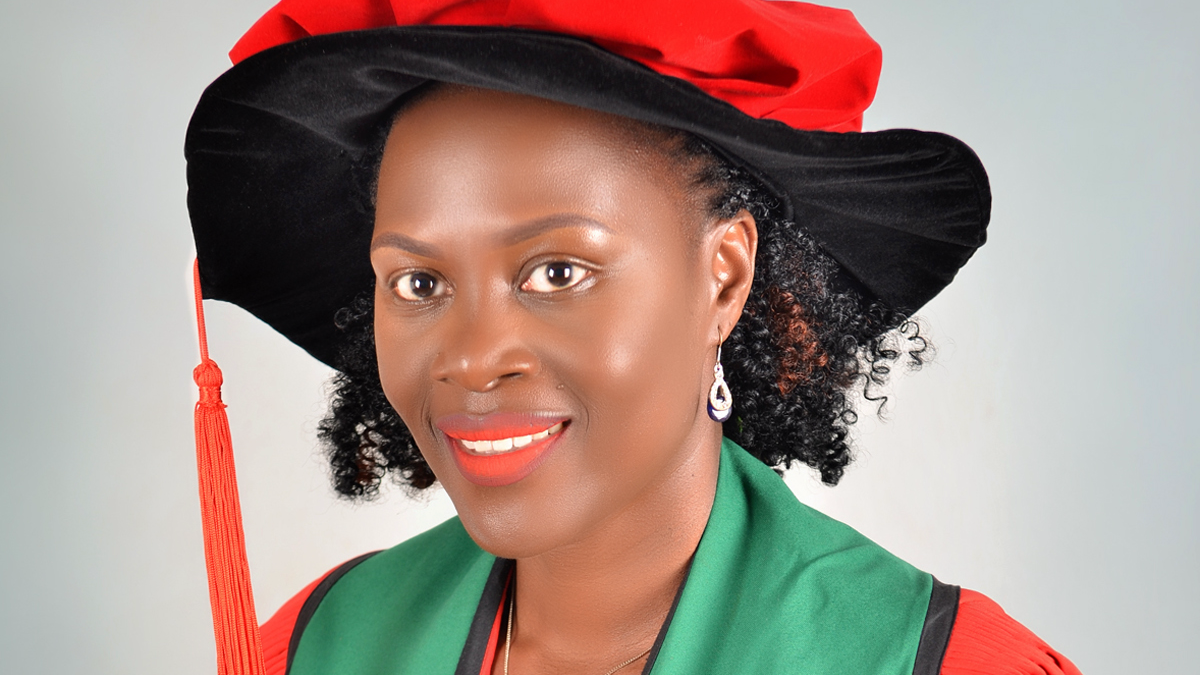Dr Prossy Namuwulya: Translating research into practical applications that benefit society.

The role of natural immunity in delaying of HIV progression from infection to AIDS/death among children in Uganda and Botswana
September 14, 2021
Dr Grace Nabakooza: Creating accessible products that prevent disease and improve life.
July 22, 2025- How would you describe yourself?
Prossy Namuwulya is a distinguished research laboratory scientist at the Uganda Virus Research Institute in Entebbe, working with the Expanded Program for Immunisation. With over a decade of experience in both field and laboratory measles collaborative research, she focuses on understanding why vaccinated individuals continue to be infected. She graduated with a PhD from Makerere University Kampala, Uganda in January 2025. Her research focused on measles and measles like infection in Uganda. She holds a master’s degree in molecular biology and biotechnology, and a Bachelors in Biochemistry and Zoology from the same University. Prossy is a mentor who desires to empower others, and this led her to volunteer into teaching University students during her weekends to interest them with science research.
Prossy has recently won 3 competitive research grants and 2 fellowships. She has published 16 articles in peer-reviewed journals with 3 of them being the first author. She has published her research as a newspaper article-Daily Monitor and also has several blogs (MUII and Mawazo) describing her research journey.
A natural mentor, Prossy is passionate about community engagement, working with policy makers and media to ensure that all children of the targeted age group receive free and available vaccines in Uganda.
In her free time, Prossy enjoys swimming and visits the physical fitness center near her home area twice a week.
- Can you share the highlights of your academic and research journey, and how it has shaped your career? – with a focus on MUII support.
My involvement with MUII began as an honorary fellow in 2019, a team that unlocked a cascade of opportunities, most notably scientific training abroad and preparation for competitive scholarship interviews. Crucially, MUII facilitated a pivotal aspect of my PhD research, enabling me to conduct vital wet lab work and data analysis at the esteemed Centre for Virus Research (CVR), University of Glasgow. Beyond this direct link, MUII provided a holistic support system vital to my doctoral success. The structured monthly PhD update seminars, coupled with the guidance of dedicated mentors and counselors, proved invaluable in navigating the complexities of my research. The provision of conducive workspace, access to essential statistical software packages, and expert advice significantly streamlined my research process. Furthermore, access to resources like reference managers (Endnote) and plagiarism checks, freely available through MUII, offered a distinct advantage compared to peers without similar institutional support.
- What motivated you to choose your area of specialization, and how do you think it contributes to scientific progress?
This journey was driven by a desire to address a critical public health challenge. My experience as a technologist in the Expanded Program on Immunisation laboratory revealed a concerning number of measles-like rash cases that tested negative for measles. This sparked a burning question: what other pathogens were responsible for these symptoms, and why were previously vaccinated individuals still contracting measles? This motivation led me to specialize in identifying these pathogens, a field crucial to scientific progress because it facilitates the development of new diagnostic assays for timely and accurate detection of viruses presenting like measles.
This leads to proper disease management and ultimately reduces mortality rates, particularly in Africa. Furthermore, the data generated underscored the crucial importance of two measles vaccine doses in achieving herd immunity.
- Could you describe some of your most significant research findings or projects that have had a broader impact?
Identifying disease-causing agents in febrile illnesses directly informs accurate diagnosis and prompt treatment, reducing preventable deaths in Africa. This also mitigates the overuse of broad-spectrum antibiotics, thereby combating the growing threat of drug resistance.
Identifying that nearly all measles infected individuals are due to unvaccination or undervaccination emphasizes the need for the 2 measles vaccine doses but more so accurate documentation of measles vccination records.
- How do you approach mentoring or guiding junior scientists, and what advice would you offer young academics seeking to excel in their research?
In guiding junior scientists, I emphasize proactive engagement and resilience. Young researchers should be encouraged to persistently seek support from senior colleagues, even when faced with busy schedules. My own experience highlights the transformative impact of mentorship. Mentorship in metagenomic next-generation sequencing techniques and scientific writing was instrumental in publishing my research in peer-reviewed journals. The collaborative spirit fostered continues to this day, with ongoing projects and future plans developing with the CVR team at the University of Glasgow. My advice to aspiring academics is simple: embrace new challenges, actively seek out grant opportunities and fellowships, and present your work widely. Do not be afraid to try.
- Are there any specific challenges you faced during your academic journey, and if so, how did you overcome them?
My journey has not been without its obstacles. Balancing motherhood, work, and studies presented a significant challenge. Furthermore, navigating emerging fields like bioinformatics in resource-limited settings posed a significant hurdle. To overcome these challenges, I relied heavily on the unwavering support of my family. I actively participated in PhD support groups, fostering accountability and shared learning. MUII’s regular PhD follow-up sessions provided crucial feedback and guidance. Crucially, I built a global network of colleagues in statistics and bioinformatics, attending specialized training courses to expand my knowledge base. Fellowships provided invaluable training in areas ranging from budgeting and grant writing to manuscript preparation. Constant self-directed learning remains essential.
- Can you discuss the importance of collaboration within the research community and highlight any examples where collaboration has been critical to your work?
Collaboration is paramount in scientific research. The exchange of expertise and access to advanced research platforms through international partnerships, particularly with institutions like the CVR, have been invaluable. Returning to my home institution with newly acquired knowledge has allowed me to disseminate these skills and contribute to local research capacity building.
- How do you balance your research work with other responsibilities, and do you have any strategies for maintaining productivity in multiple areas?
To effectively balance research with other responsibilities, I have learned to empower and delegate. By training others, I can confidently entrust responsibilities with minimal supervision. Collaborative research with experts from diverse backgrounds, institutions, and countries is also key to maintaining productivity. Furthermore, engaging with government, policymakers, media, and community representatives ensures that research findings have a broader impact.
- Finally, what is your vision for the future of scientific research, and how do you think young academics can contribute to it?
My vision for the future of scientific research is one where research is visible, commercialized, and applied. By fostering a culture of innovation and entrepreneurship, young academics can play a crucial role in translating research findings into practical applications that benefit society. This requires developing innovative ways, perhaps through mobile applications and effective social media marketing, to highlight the practical value of research and translate complex scientific concepts into accessible formats for daily use. Only then will we unleash the full potential of scientific research to address the pressing challenges facing our world.




